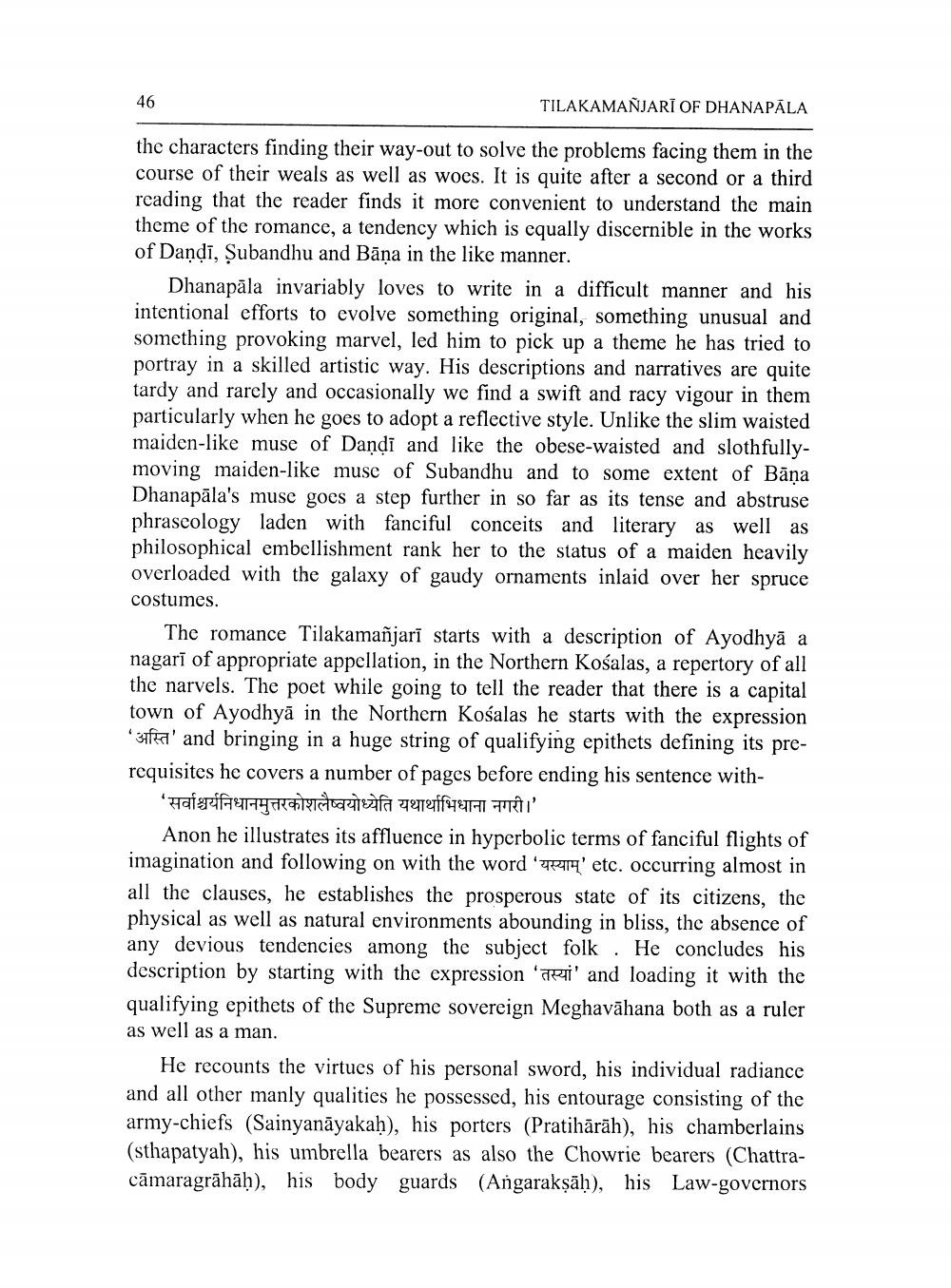________________
46
TILAKAMAÑJARI OF DHANAPALA
the characters finding their way-out to solve the problems facing them in the course of their weals as well as woes. It is quite after a second or a third reading that the reader finds it more convenient to understand the main theme of the romance, a tendency which is equally discernible in the works of Dandi, Şubandhu and Bāņa in the like manner.
Dhanapāla invariably loves to write in a difficult manner and his intentional efforts to evolve something original, something unusual and something provoking marvel, led him to pick up a theme he has tried to portray in a skilled artistic way. His descriptions and narratives are quite tardy and rarely and occasionally we find a swift and racy vigour in them particularly when he goes to adopt a reflective style. Unlike the slim waisted maiden-like muse of Dandi and like the obese-waisted and slothfullymoving maiden-like muse of Subandhu and to some extent of Bāna Dhanapāla's muse goes a step further in so far as its tense and abstruse phrascology laden with fanciful conceits and literary as well as philosophical embellishment rank her to the status of a maiden heavily overloaded with the galaxy of gaudy ornaments inlaid over her spruce costumes.
The romance Tilakamañjarī starts with a description of Ayodhyā a nagarī of appropriate appellation, in the Northern Košalas, a repertory of all the narvels. The poet while going to tell the reader that there is a capital town of Ayodhyā in the Northern Kosalas he starts with the expression
f' and bringing in a huge string of qualifying epithets defining its prerequisites he covers a number of pages before ending his sentence with
'सर्वाश्चर्यनिधानमुत्तरकोशलैष्वयोध्येति यथार्थाभिधाना नगरी।' ।
Anon he illustrates its affluence in hyperbolic terms of fanciful flights of imagination and following on with the word ' n' etc. occurring almost in all the clauses, he establishes the prosperous state of its citizens, the physical as well as natural environments abounding in bliss, the absence of any devious tendencies among the subject folk. He concludes his description by starting with the expression 'ai' and loading it with the qualifying epithets of the Supreme sovereign Meghavāhana both as a ruler as well as a man.
He recounts the virtues of his personal sword, his individual radiance and all other manly qualities he possessed, his entourage consisting of the army-chiefs (Sainyanāyakah), his porters (Pratihārāh), his chamberlains (sthapatyah), his umbrella bearers as also the Chowrie bearers (Chattracāmaragrāhāh), his body guards (Angarakṣāh), his Law-governors




